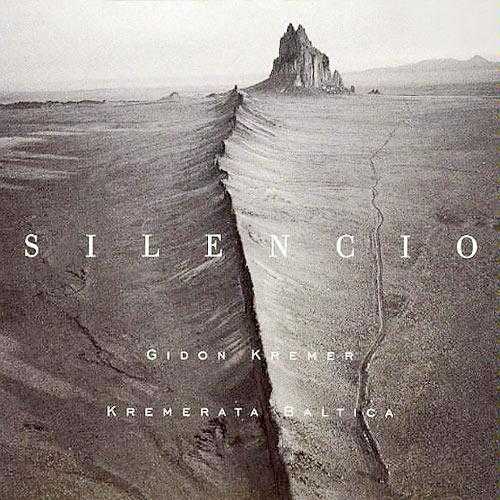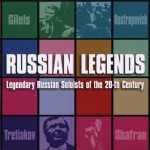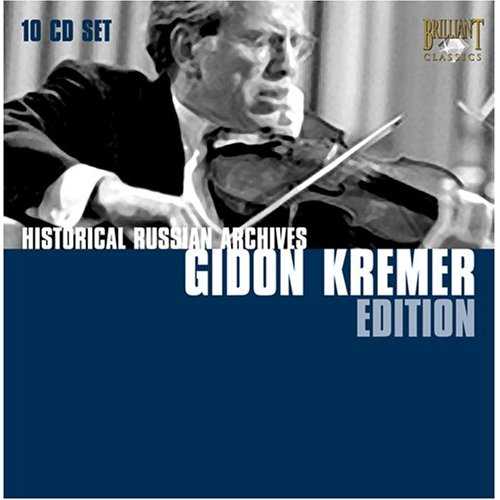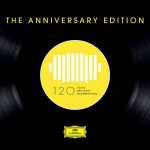
Composer: Arvo Part, Philip Glass, Vladimir Martynov
Performer: Tatjana Grindenko, Gidon Kremer
Orchestra: Kremerata Baltica
Conductor: Gidon Kremer, Eri Klas
Audio CD
SPARS Code: DDD
Number of Discs: 1
Format: APE (image+cue)
Label: Nonesuch
Size: 270 MB
Recovery: +3%
Scan: no
# Tabula rasa, concerto for 2 violins (or violin & viola), prepared piano & string orchestra
Composed by Arvo Part
with Kremerata Baltica
Conducted by Gidon Kremer
# Company. for string quartet/string orchestra
Composed by Philip Glass
with Tatjana Grindenko, Gidon Kremer, Kremerata Baltica
Conducted by Eri Klas
# Come In!, for 2 violins & string orchestra
Composed by Vladimir Martynov
with Tatjana Grindenko, Gidon Kremer, Kremerata Baltica
# Darf Ich…, for violin, bell & strings
Composed by Arvo Part
with Tatjana Grindenko, Gidon Kremer, Kremerata Baltica
01. Paert: Tabula Rasa, I. Ludus – Con Moto
02. Paert: Tabula Rasa, II. Silentium – Senza Moto
03. Glass: Company For String Orchestra, Movement I
04. Glass: Company For String Orchestra, Movement II
05. Glass: Compony For String Orchestra, Movement III
06. Glass: Company For String Orchestra, Movement IV
07. Martynov: “Come In!”, Movement I
08. Martynov: “Come In!”, Movement II
09. Martynov: “Come In!”, Movement III
10. Martynov: “Come In!”, Movement IV
11. Martynov: “Come In!”, Movement V
12. Martynov: “Come In!”, Movement VI
13. Paert: Darf Ich
A minimalist delight.
First of all, why silence? And how?
After all, one has to agree with John Cage when he points out that “There is no such thing as an empty space or an empty time. There is always something to see, something to hear. In fact, try as we may to make a silence, we cannot.”
What then does it mean to call an album “Silencio”?
I think what it means is that the music in this album tries not to communicate something to its listener, but rather aims at helping one communicate with one’s Self. This lack of intentional outward interaction, and the parallel promotion of introspection, I think, is intended to be thought of as a silence. Indeed, the emotional landscape it allows us to observe is, perhaps, the closest thing to silence, for it is a still and timeless picture, void of any matter, absorbed in a heartbeat alone.
Technically this album is superb, with Gidon Kremer and his disciples proving to be, as always, up to the highest of expectations. The prepared piano in Arvo Pärt’s Tabula Rasa deserves praise as well – I have never heard the piano sound so beautiful, evocative and majestic at once. As for Arvo Pärt, Philip Glass and Vladimir Martynov, they are, of course, a handsome lot to be found combined in one CD, with 68 minutes of music at a reasonable price by Nonesuch’s standards. The nature of these composers, however, is what makes this album a product that not everyone is likely to care for. I feel quite certain that anyone who likes minimalist music – in the style of Gorecki or Kancheli, for instance – will find this album enticing. On the contrary, I recommend those who believe simplicity to be a symptom of stupidity to spend their money in a different way, for the music in this album is indeed a minimalist delight.




Thanks
Thank you!
Thanks a lot! :)
Очень красивая музыка.
Правда, тот же квартет Филипа Гласса, по-моему, лучше в исполнении Кронос Квартета (95-год).
Мартынов очень красив, хотя местами он почти “купюрно-классичен” и кажется, что слушаешь Вивальди.
…З.Ы. При внимательном прослушивании есть небольшие “скачки” (дефекты диска) во втором трэке где-то на 9:25.